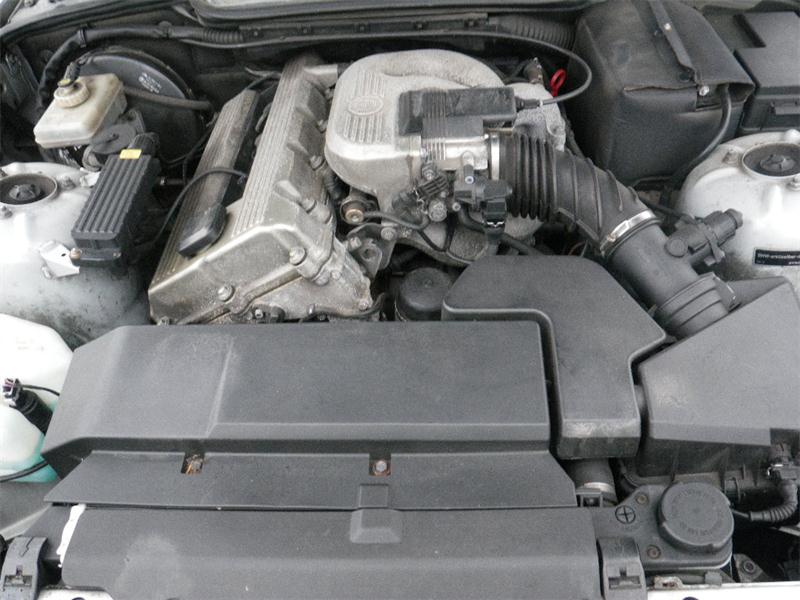BMW 318ti: A Comprehensive Guide to This Compact Giant
BMW 318ti: A Comprehensive Guide to This Compact Giant
Blog Article
Crucial Factors To Consider for Picking the very best Engine for Your Requirements
In the realm of choosing the suitable engine to satisfy your needs, a number of essential aspects demand precise consideration to make certain optimum performance and efficiency. From the nuanced balance in between power and efficiency to the often-overlooked facets of maintenance and solution requirements, each aspect plays a pivotal role in establishing the most suitable engine for your certain needs.
Power and Efficiency
When examining engines for optimum efficiency, it is important to prioritize both power output and effectiveness. Efficiency refers to exactly how well the engine converts gas into useful power. By carefully assessing both power and effectiveness, you can pick an engine that provides ideal performance and fulfills your requirements efficiently.
Gas Effectiveness and Economic Climate
Fuel performance refers to the engine's capability to transform gas right into energy with very little waste, directly influencing operating prices and ecological sustainability. Engines with higher fuel effectiveness not just decrease fuel costs but also reduce carbon discharges, adding to a greener operation.

Compatibility and Application
Considering the fuel efficiency and economy of an engine, the following crucial aspect to address is its compatibility and application within particular operational contexts. Compatibility refers to just how well the engine incorporates with the overall system or equipment it powers. It entails variables such as physical measurements, installing options, electric user interfaces, and control systems. Ensuring compatibility is necessary to avoid concerns such as getting too hot, vibrations, or power discrepancies (bmw 318ti).
Various engines are made for certain objectives, whether it be commercial equipment, marine vessels, automobiles, or power generators. Comprehending the designated application allows for the option of an engine that can deliver the necessary power output, torque, and functional features.
Maintenance and Solution Requirements
Maintenance and solution needs play a vital role in making sure the click this link longevity and optimal performance of an engine. Routine upkeep is necessary to stop failures, extend the life expectancy of the engine, and maintain its efficiency. When picking an engine, it is crucial to consider the manufacturer's suggested maintenance routine and the schedule of service centers or qualified service technicians.
Factors such as the frequency of oil modifications, filter replacements, and general inspections can dramatically impact the engine's efficiency. Some engines might call for more constant maintenance based upon their layout and usage, while others may have longer periods in between upkeep checks. It is essential to abide by these service requirements to prevent expensive repairs and unanticipated downtime.

Price and Budget Considerations
Budget plan restraints commonly play a substantial duty in the decision-making procedure when choosing an engine for a specific application. see this site When taking into consideration the cost and budget ramifications of choosing an engine, it is vital to examine not only the preliminary purchase rate however also the lasting expenditures related to maintenance, gas usage, and prospective upgrades or repair work. It is crucial to strike an equilibrium in between the in advance cost of the engine and its overall lifecycle expenses to ensure that the chosen engine remains financially lasting throughout its operational lifespan.
Elements such as fuel integrity, resilience, and efficiency can straight impact the complete price of ownership of an engine. While a much more costly engine may have greater ahead of time costs, it can possibly result in reduced upkeep and fuel expenses over time, hence offering far better value in the lengthy run.
Conclusion

Gas efficiency refers to the engine's capacity to transform gas into power with very little waste, directly influencing operating costs and environmental sustainability.Aspects influencing gas effectiveness include engine design, combustion effectiveness, and total performance optimization. In addition, choosing the proper gas kind and quality as recommended by the engine producer can better enhance efficiency and prolong engine lifespan.
Engines with excellent use functions and readily available components can decrease maintenance costs and decrease the time the engine is out of procedure - bmw 318ti. It is important to strike a balance between the in advance cost of the engine and its overall lifecycle prices to guarantee that the chosen engine remains financially sustainable throughout its functional life-span
Report this page